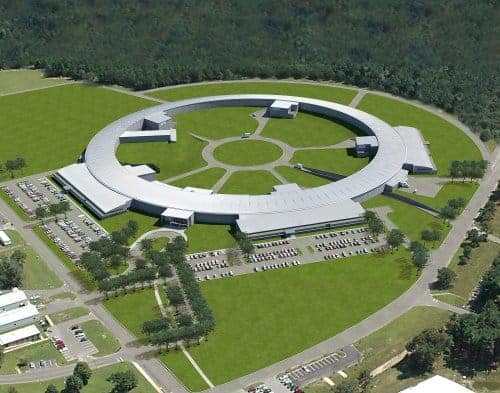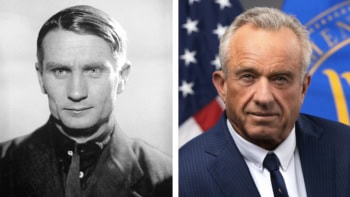
Construction of a major new synchrotron-radiation facility has been approved by the US Department of Energy (DOE). The National Synchrotron Light Source II (NSLS-II), which will be built at Brookhaven National Laboratory, will come online in 2015 and cost $912m. It will have 58 beamlines, which will provide researchers with radiation from the far infrared (1 mm) to hard X-rays (10 pm) for a range of experiments in everything from condensed-matter physics to biomedicine.
A third-generation synchrotron source, the NSLS-II will replace Brookhaven’s existing NSLS light source, which has been operating for 22 years. The new facility will, however, be 10,000 times brighter and have 10 times higher X-ray flux than the present synchrotron.
NSLS-II will consist of a linear accelerator that will fire electrons to energies of 200 MeV. The electrons will be fed into a booster ring that will increase their energy to 3.0 GeV. The electrons will then be sent to a 791 m circumference storage ring that contains magnetic devices called “undulators”, which forces the electrons to follow a sinusoidal path and emit X-rays.
Once complete,only the SPring-8 synchrotron source in Hyogo, Japan, the Advanced Photon Source in Argonne, US, the European Synchrotron Radiation Facility in Grenoble, France, and the Shanghai Synchrotron Radiation Facility in China will have a higher storage ring energy (8, 7, 6 and 3.5 GeV respectively).



